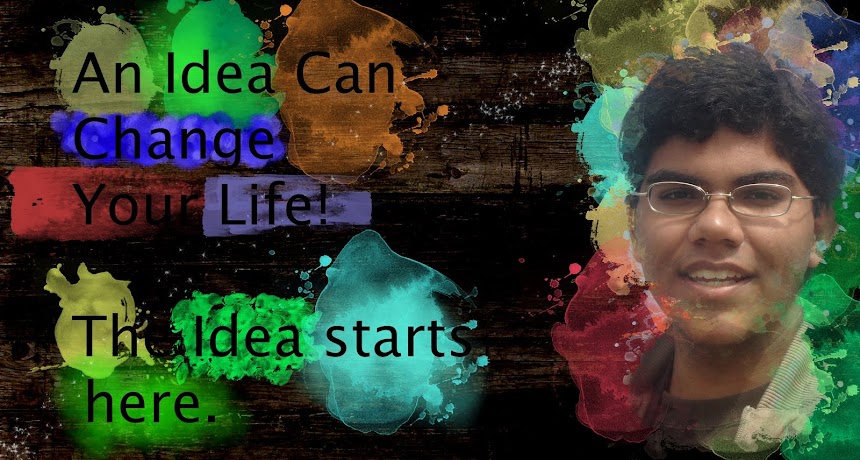Moving on, in this post today, I want to discuss on my perspective of what engineering should really be like. Over the course of the week, I have had various lectures and discussions with deans of engineering colleges, students like me, presidents of engineering education societies and who not. There are points with which I both agree and disagree but I will only discuss on the framework with which I believe should be the way to go.
Firstly, it is important to understand that engineering is unlike any other field of study. The syllabi for business, finance, econs, arts, social science, humanities and even music remains more or less constant. The rate of innovation in these fields need not necessarily be slow however the basic knowledge required to work in those fields remain more or less the same over time. In engineering however, new technologies crop up almost every day. The repercussions of this faster-than-ever change demands engineers to keep abreast of the latest technologies and understand their methods of constructions and working mechanisms. Take in the automative industry for instance - previously we would only require to know the Otto engine, the Diesel engine and Stirling engine. In contrast, automative engineers now require to know turbochargers, the effect of various bearing sizes and with the onset of Green Technology, I would guess they will have to learn about battery technology, aerodynamics and a whole hoard of other stuff. Can you think of a similar analogy for finances?
Secondly, the many engineering graduates today DO NOT end up in engineering related jobs. Instead, wallstreet gobbles them down and chew them until their brains run out of oil. Engineers everywhere are valued for their analytical skills and highly logical and critical thinking. As such, engineering educators of today not only require the engineering graduates to think as an engineer but are required to instill in them the other aspects of thinking as well to prepare them for future jobs. In other words, it is not longer sufficient for engineers to view the world with the feasibility lens only. Instead, they must - they must - fathom the viability and desirability lens as well.
If engineers were to come up with more inventions, they will need to think beyond the feasibility boundaries. Most of the innovations today in fact occur at the overlap of the feasibility-viability-desirability lenses.
| Various lenses |
Think of Apple, Ferrari, Gucci, Prada, Chopard, Tesla Motors, IKEA, Canon, Nikon, Samsung and other successful consumer-related companies. The technology behind each of the products require the feasibility thought. The finances require the viability thought. And the design itself demands the desirability thought. Without any one of them, the company fails. The product fails.
Hence, engineering colleges can no long focus on disseminating technical knowledge but they must also build and develop the other aspects of the brain. Many colleges around the world continuously reform their syllabus to meet the industry needs. In fact, an engineering college will need a major reform almost once every 4 years because that is how fast technology becomes obsolete. Isn’t this scary? For a freshman, it would mean that whatever he is learning now will become obsolete by the time he graduates.
In such a situation, the only way forward would be to teach engineers to be life-long learners. Engineering sure is a tough job! And precisely for this reason, many engineering grads shy away from engineering jobs as they get tired of learning new stuff again and again thus explaining why they switch to other fields by the time they reach their 3rd or 4th job.
As for a professional engineer, one of the most important concepts in engineering education then would be abstract thinking. It is customary to have many modules during your freshman year emphasizing the importance of abstraction.
At the same time however, to be good engineers, you cannot just live within your technical boundaries and evaluate the pros and cons of technology A and B. We need to understand what both technologies entails in terms of ease of use (requiring us to have a basic grasp of psychology), we need to realize that implementing the more expensive technology B will place the company in the midst of luxury brands, we need to know that technology B is sexier in design and exudes a certain sense of pride when held in the hands of a businessman. This is what bounds the work of engineers and this is what engineering education should ought to focus on.
With this, let me end of with a joke:
The Equation of earnings
Engineers and scientists will never make as much money as business executives. Now a rigorous mathematical proof has been developed that explains why this is true:
Postulate 1: Knowledge is Power
Postulate 2: Time is Money
As every engineer knows,
Work = Power Time
Since Knowledge = Power, and Time = Money, we have:
Work = Knowledge Money
Solving for Money, we get:
Money = Work / Knowledge
Thus, as Knowledge decreases, Money increases, regardless of how much Work is done.
Conclusion: The Less you Know, the More you Make.
Note: It has been speculated that the reason why Bill Gates dropped out of Harvard’s math program was because he stumbled upon this proof as an undergraduate, and dedicated the rest of his career to the pursuit of ignorance.

No comments:
Post a Comment